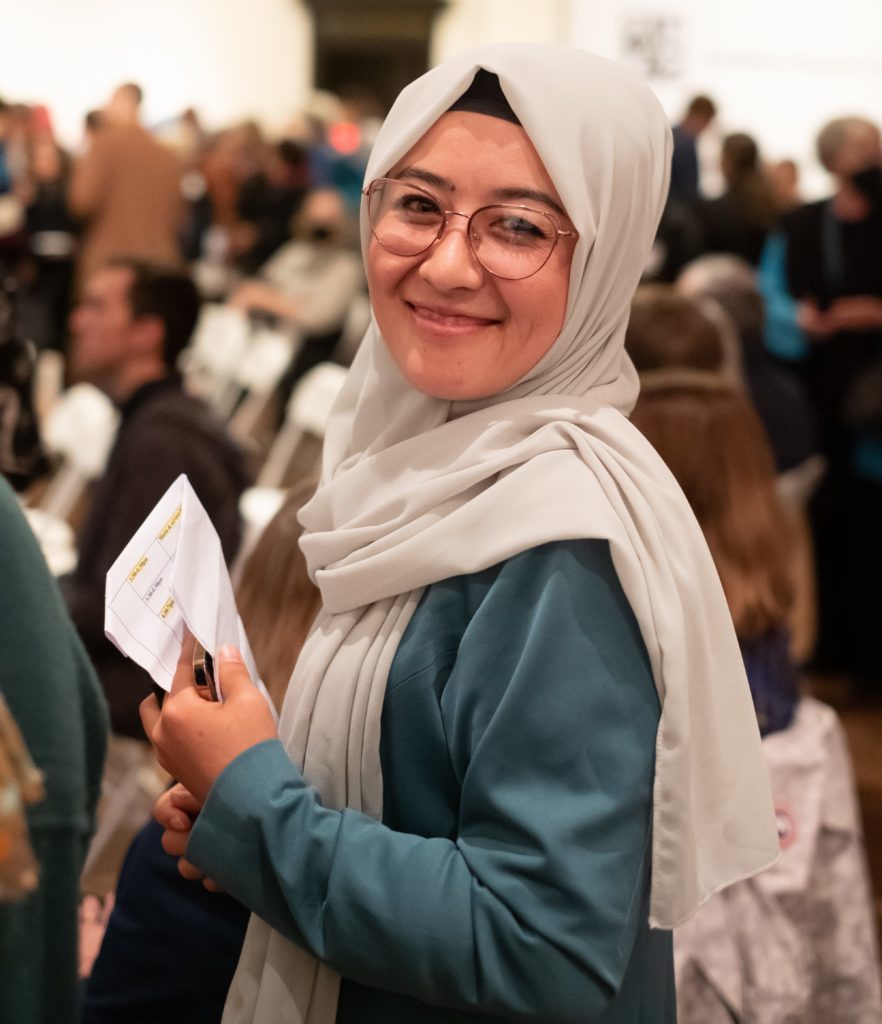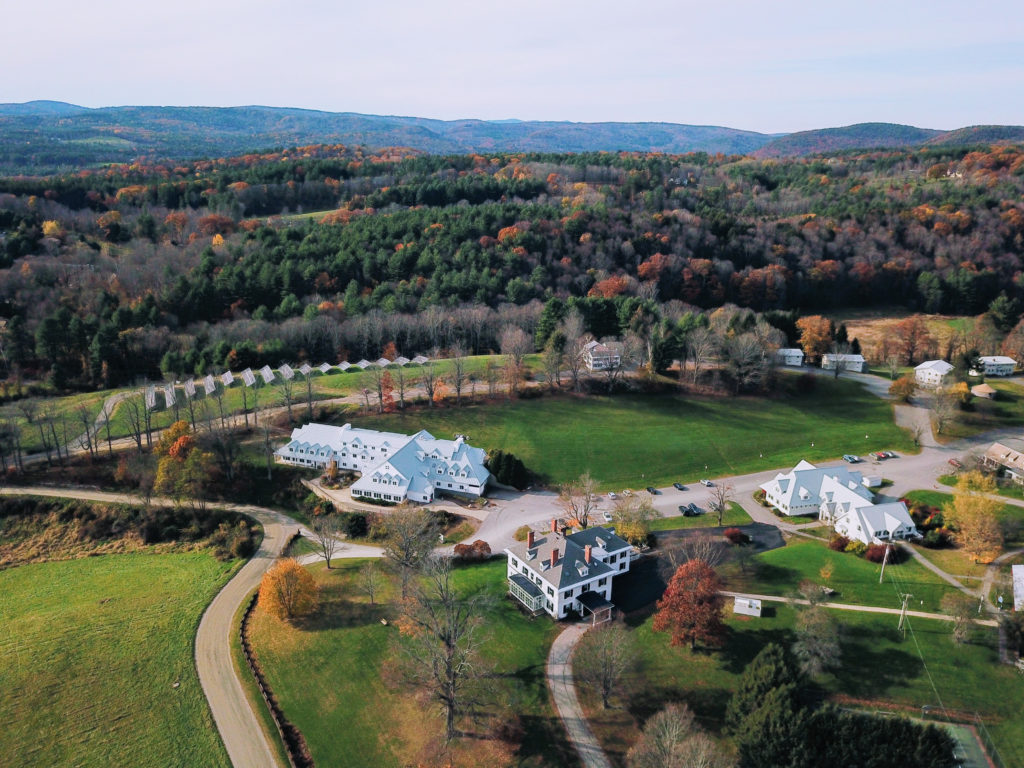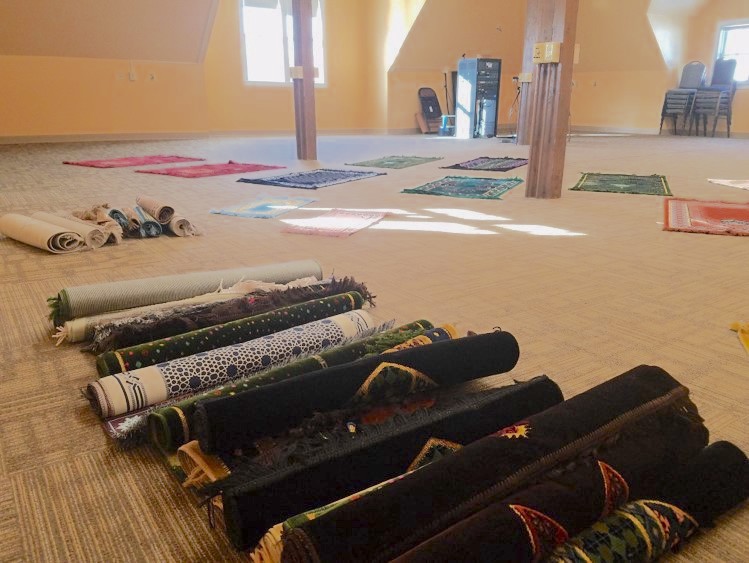Creative housing solutions topic of discussion with refugee resettlement practitioners
November 30th, 2022 | School for International Training
Refugee Housing Solutions spoke with World Learning Vice President of External Engagement and Advocacy Joel Colony about SIT and World Learning’s innovative initiative to welcome refugees to the United States.
Refugee Housing Solutions is an online resource for refugee resettlement practitioners. This is a reposting of the original article which appeared on its website as Q&A with World Learning’s Joel Colony on November 16.

To understand more about World Learning and SIT's innovative initiative to welcome refugees to the U.S., Refugee Housing Solutions (RHS) staff sat down with Joel Colony, vice president of external engagement and advocacy, to learn more.
In his role, Colony oversees global policy, strategic partnerships, and external affairs to ensure that World Learning is current and relevant in pursuit of its mission: to enhance the capacity and commitment of individuals, institutions, and communities worldwide to create a more sustainable, peaceful, and just world. Before joining World Learning, Colony worked in the U.S. Senate in a variety of legislative roles, including as a foreign policy adviser who helped improve the Afghan Special Immigrant Visa program and increase authorized visas for Afghans who supported military personnel and diplomats during two decades of U.S. presence in the country.
In its decision to support refugees and other newcomers to the U.S. by using its Brattleboro, Vermont, campus innovatively to house and support them, the institution is a prime example of what RHS is seeking to accomplish in partnership for refugees in the U.S.
RHS Housing Programs Associate Yasmine Noubani spoke with Colony in September 2022 to discuss World Learning and SIT’s innovative approach to resettling refugees and other newcomers. This Q&A highlights key excerpts from the interview that are especially relevant to RHS stakeholders.
RHS: Could you explain the process World Learning had when transforming student housing/college dorm settings into refugee housing?
Colony: Thank you for inviting me to speak with you today, Yasmine, and to share how World Learning is supporting refugee resettlement efforts in rural southern Vermont, where we are the welcoming place for all refugees settling in the area. We’re thankful to be a part of their resettlement journeys as they become neighbors and in a community of other refugees experiencing similar challenges to first get to rural Vermont and then call it home. As some people know, the Brattleboro community in which World Learning is headquartered was one of the first rural American communities to welcome Afghans in response to the collapse of Afghanistan in August 2021. We provided short-term housing to 107 Afghans then and are now preparing to welcome 70 more this fall.
As you may know, the School for International Training (a branch of World Learning) transitioned its graduate institute programs to more than 50 learning centers around the world to enable more direct experiential learning for our graduate-level students to enhance their intercultural competence. So, our 200-acre campus had infrastructure, including residence halls, to be put to use housing refugees.
We would encourage nonprofits, the private sector, and higher education institutions to consider what they could bring to refugee resettlement in their communities.
This housing effort was unique because families were different and, of course, larger than a traditional student population; over a third or so of the guests were children. So, a good deal of focus was on ensuring adequate space by combining multiple dorm rooms for families. In addition, while we accommodated families, we enrolled all adults in the New Vermonter Education Program (NVEP) for English Language Learning and cultural orientation at no charge to the refugees. In fact, the cost was paid with support from the State of Vermont, foundations including Putnam, KeyBank, and Starbucks, and other organizations such as Welcome.US. Long story short, our refugee guests are enrolled in an education program and are therefore students while they are with us.
The transformation of our campus continues with a generous grant from the State of Vermont, which we are matching with our own funds to upgrade our kitchens in response to feedback. Additionally, besides their residence halls, refugees have access to a Welcome Center, dining hall, classrooms, the library, a computer lab, prayer rooms, and athletic facilities and spaces. We have also provided our refugee resettlement partner Ethiopian Community Development Council (ECDC) with office space for case management and legal support at no cost. Finally, just to put an emphasis on it, rural refugee resettlement is important for many communities across the country. Use of a campus in this way may be ideal for the overall success and sustainability of these efforts in more rural areas.

RHS: How does placement work when refugees are being settled into the center? Where do those who graduate/complete the on-campus program go afterward? Is there a time frame?
Colony: On this, we work hand-in-hand with ECDC staff to welcome refugees. They arrive on campus at the Welcome Center and start with a tour of facilities, including the dining hall, classrooms, and their accommodations. Most refugee guests stay between two and three months before transitioning to more permanent housing in Brattleboro (a town of 12,000 residents) and surrounding towns (a population of 79,000 is spread over three southern Vermont counties). While our guests continue their resettlement journeys, they continue to attend our English classes and cultural orientation. Other employment training and case management services also continue beyond campus stays.
RHS: How has World Learning found qualified resettlement staff?
Colony: World Learning is not itself a resettlement agency, but rather a partner of ECDC in Vermont and a potential partner to other national refugee resettlement agencies. That said, we do have experienced alumni, including teachers of English as a second language who live nearby and who have led World Learning programs in refugee camps around the world for skills assessments, English language instruction, and cultural orientation. In fact, many local alumni worked for World Learning in Southeast Asia in the late 1970s to mid-1990s to support the then-largest refugee resettlement effort in history with over 250,000 Cambodian refugees living in Thailand. And for the first 90 days of the NVEP, we relied entirely on alumni volunteers’ time and expertise. In terms of qualifications, we referred to the summer months when we welcomed U.S. State Department-funded exchange students from around the world. Additionally, for example, we studied the mid-1950s when we housed Hungarian refugees who fled Soviet crackdown on their country.
RHS note: Another aspect of World Learning’s qualifications to support refugee resettlement, apart from professional staffing is its location in Southern Vermont, and in particular, Brattleboro which is a historically welcoming place for newcomers — including refugees.
RHS: You mentioned your public/private partnerships for housing. What do these partnerships look like and what do they entail?
Colony: We partner closely with the Vermont State Housing Authority (VSHA), which has made use of our campus possible. VSHA’s mission is to promote and expand the supply of affordable rental and homeownership opportunities statewide. They have the distinction of being the first state housing authority in the nation, starting in the late 1960s. VSHA impacts nearly every community in the state and directly helps over 8,500 families. We appreciate what they do and our opportunity to collaborate with them to help even more families — in this case, refugee families. This innovative partnership involves the distribution and use of Emergency Rental Assistance (ERA) established through the U.S. Congressional Consolidated Appropriations Act of 2021. When ERA funds get to Vermont, they become the Vermont Emergency Rental Assistance Program (VERAP), some of which helps fund our refugee welcome and housing innovation.
Summary of Innovations
In 2021, a determination was made by relevant Vermont state government officials that refugees in these categories were eligible for VERAP:
- Able to demonstrate the risk of experiencing homelessness or housing instability
- Household income is at or below 80% of the area’s median income
After exploration of U.S. Treasury Department guidance, Vermont determined that VERAP could be distributed 1) in large tranches and 2) directly to World Learning, rather than to individual refugees in smaller individual sums first and then to World Learning. As for the process, ECDC enrolled refugees in VERAP when they arrived on campus. As I mentioned, VSHA then provided VERAP sufficiently large tranches of funds to World Learning to house, feed, and otherwise support refugees on campus and then reconciled spending when reporting on allotted VERAP use for refugees. After on-campus stays, VERAP can follow refugees to their next destination beyond their stay with us. Another key innovation in enrolling all adult refugees as students in World Learning’s New Vermonter Education Program was this: by incorporating housing into the education program, refugees’ participant room fee was covered by VERAP. The participant fee acknowledges the education program and, as such, exempts World Learning from the landlord-tenant statute without which the campus would likely not be available for this use.
Of course, it’s not just about where you can fit people, but what is required to add residential amenities and knowing what resources are needed to encourage inclusive communities.
It’s an innovative partnership — a housing authority and a higher education institution with a campus — teaming up to support refugee resettlement through adaptive programming.
RHS: What differentiates World Learning from other organizations in the refugee resettlement process?
Colony: We are a unique organization in refugee resettlement efforts in Vermont because of our experience educating and housing refugees since after World War II, and our reach as a Vermont-based global nonprofit. As such, we have the ability to implement critical services in refugee resettlement and strengthen the local resettlement effort while also scaling innovations and sharing lessons learned through our national and international networks. We are also learning through those same networks about how to improve what we are doing in Vermont. With 90 years of history, we also have a vast, knowledgeable, and capable alumni network. And I believe we have a particular ability to support refugee resettlement in rural American communities where there’s often enthusiasm to welcome new Americans, available jobs are plentiful, but the working population is aging. So, these communities are looking for future workers.
Another aspect of our work that differentiates us is that we welcome and support any and all refugees — whole families, young single adults, seniors, and so on. We hope that we can serve as a model for how other higher education institutions can join in refugee support and resettlement. We believe it’s the right thing to do, and that colleges and universities are uniquely positioned in communities to help refugees and benefit their institutions and their student bodies by welcoming and learning from refugees.

RHS: What advice or guidance can you give organizations interested in a similar innovation?
Colony: We would encourage nonprofits, the private sector, and higher education institutions to consider what they could bring to refugee resettlement in their communities. This work also takes a village, so it’s important that communities that support welcoming refugees begin by considering what resources they have and then what they’ll need to acquire, recruit, or build. We had most of what we needed already in Brattleboro and statewide, including a passionate and supportive local community, good local partners like the Brattleboro Development Credit Corporation, and state government leaders who supported refugee resettlement. We had to recruit a refugee resettlement agency and help establish its office. For housing, we had to start a conversation with our state housing authority to see what could be possible. There’s no doubt that this work needs to be funded somehow, so we would advise others to engage with their State Refugee Coordinators and state and local housing authorities. Emergency Rental Assistance is essential to supporting refugee housing efforts in Southern Vermont and it may be the right fit for similar efforts in other states across. Finally, refugee resettlement is sometimes messy work. The tendency is at times, due to the urgency of the efforts and the limited resources to do this work, to attempt a “cookie cutter“ approach, which is not going to work. We strongly recommend Memoranda of Understanding (MOU) or other formal agreements with major partners to guide the collaboration and ensure clear division of labor and accountability.
We hope that we can serve as a model for how other higher education institutions can join in refugee support and resettlement.
RHS: How do you determine the extent to which World Learning has been successful in this innovation?
Colony: World Learning is a continuously learning organization. We believe we can always improve our work and aim to do so. Our founder Donald Watt emphasized this when he said, “We engage with the world not to teach but to learn.” While we clearly teach, we also aim to learn to teach more effectively through feedback. We feel successful when we receive positive feedback from refugee guests. Some success depends largely on partners in securing permanent housing and employment. Ultimately, a major indication of our success is the extent to which refugees first resettled in southern Vermont choose to stay.
RHS: Where does World Learning see refugee housing in the next 10 years?
Colony: The Vermont State Housing Authority is tuned into the future refugee housing in the state and across the country. They’re the experts who have been kind enough to share their thoughts on this with World Learning at times. With that, I believe short-term housing like what we are providing on our campus can and should be more regularly utilized for refugee resettlement, particularly as more rural communities seek to welcome refugees.
I think we are seeing through our partnership with VSHA the need for a rethinking on how we use and adapt existing spaces to respond to the next wave of housing nationally, and how we encourage greater social cohesion in communities across the country through this. Clearly, campuses are a part of that consideration, especially campuses with decreasing enrollments and space available. But refugee housing may also include unused and converted office buildings or shopping malls. Of course, it’s not just about where you can fit people, but what is required to add residential amenities and knowing what resources are needed to encourage inclusive communities. Doing what World Learning has done can help to ensure more inclusive communities with inclusive economies as a start.
RHS: Is there anything else you would like to add?
Colony: Thank you for the opportunity today to share World Learning’s ongoing refugee support efforts in Vermont, which wouldn’t be possible without good work and support of our partners, the State of Vermont, and over 160 local community volunteers who are a part of this each and every day. And thanks to you all for the important work of Refugee Housing Solutions!
